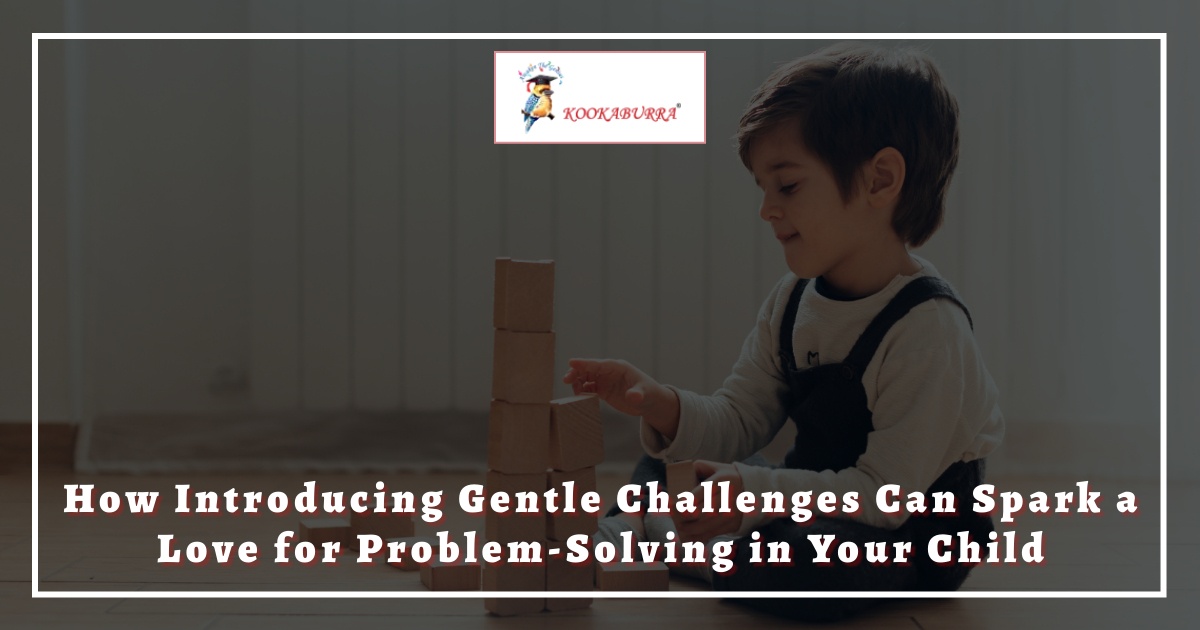
How Introducing Gentle Challenges Can Spark a Love for Problem-Solving in Your Child
At Kookaburra Preschool, we recognise that the minds of young children are delicate canvases, primed for the brushstrokes that will shape their future learning journeys. In an era where innovation and problem-solving are revered, it is essential to nurture these qualities from the earliest stages of development. However, the key lies not in overwhelming tasks but in the artful introduction of gentle challenges that inspire curiosity and fortitude.
Understanding The Power of Gentle Challenges
Gentle challenges are those small, manageable tasks that encourage toddlers to think, explore, and discover solutions independently. Unlike conventional challenges, which may feel overwhelming to a young child, these are tailored to their developmental stage, ensuring that the process of problem-solving feels natural and enjoyable rather than daunting.
Nurturing Problem-Solvers: Different Types of Challenges for Toddlers
Independent Self-Care: Building Confidence through Everyday Tasks
Introducing gentle challenges to two-year-olds, such as letting them feed themselves or dress independently, is key to fostering self-care skills and confidence. These tasks not only enhance their independence but also lay the foundation for tackling more complex challenges in the future.
Social Skills: Growing with New Environments and Interactions
Introducing your child to new environments, such as spending time with relatives or friends they’re unfamiliar with or attending a playgroup, can be a valuable experience. These situations encourage toddlers to adapt to new surroundings and interact with people outside their immediate family. While they may feel hesitant at first, overcoming these initial discomforts helps build social confidence and teaches them how to handle unfamiliar situations.
Problem-Solving through Play and Organisation
Activities like stacking blocks to build a tower or fitting shapes into a sorter may seem like mere games, but they are powerful tools for cognitive development. These tasks require toddlers to think critically and come up with solutions, fostering their creativity and persistence.
Beyond play, incorporating organisational challenges, such as tidying up toys after playtime, can teach toddlers the value of order and responsibility. These activities not only reinforce the concept of organisation but also instil a sense of accomplishment in finishing a task on their own.
What Are The Best Ways to Help Toddlers Enjoy Challenges?
When children face challenges and stumble, the instinct to either reprimand or lavish them with rewards might arise, but the true art lies in fostering their tenacity and curiosity. It’s essential to recognise that sometimes the most profound growth occurs when they’re given the space to pause and reflect, perhaps even ‘sleep on it.’ Rather than emphasising the end result, celebrate their perseverance, their willingness to delve into the unknown, and their determination to keep trying. If a toy breaks or a plan falters, let it be a gateway to discovery rather than a moment for correction.
Crafting environments rich with opportunities for experimentation where they can build, disassemble, and engage in the pure joy of exploration allows them to savour the journey of learning. Whether their adventures lead them to get messy outdoors or explore new ideas indoors, the real reward lies in their unyielding curiosity and their courageous spirit to keep going. By nurturing this approach, you empower your child to embrace challenges with a sense of wonder, turning obstacles into stepping stones.
Laying the Foundation for Lifelong Learning
Introducing gentle challenges during the early years sets the stage for a lifelong love of learning and problem-solving. By embracing these small challenges, you are providing a guide to raising confident children, equipping them with the tools to navigate life’s complexities with assurance. Kookaburra Preschool incorporates age-appropriate tasks into daily routines, guiding your child in building essential skills within a nurturing environment. We invite you to explore how our approach can help your child become a confident problem-solver.
